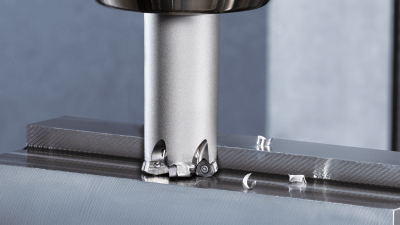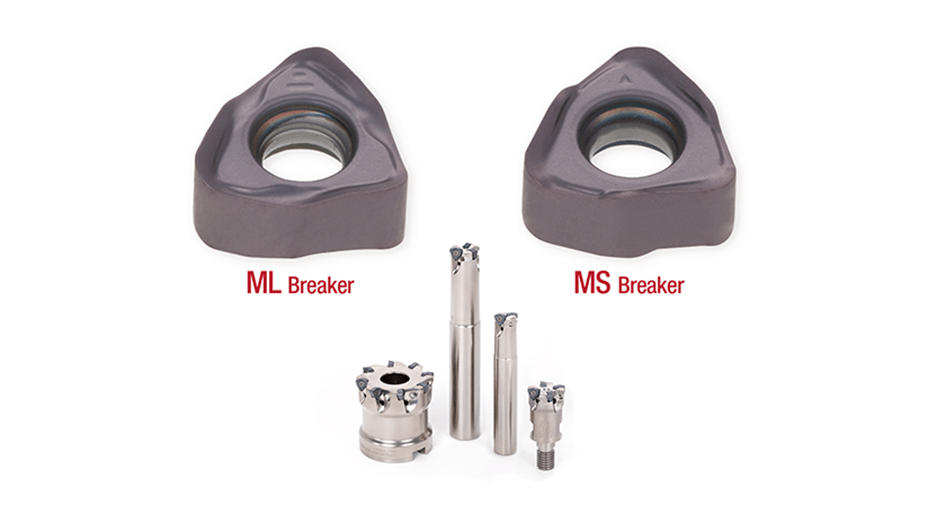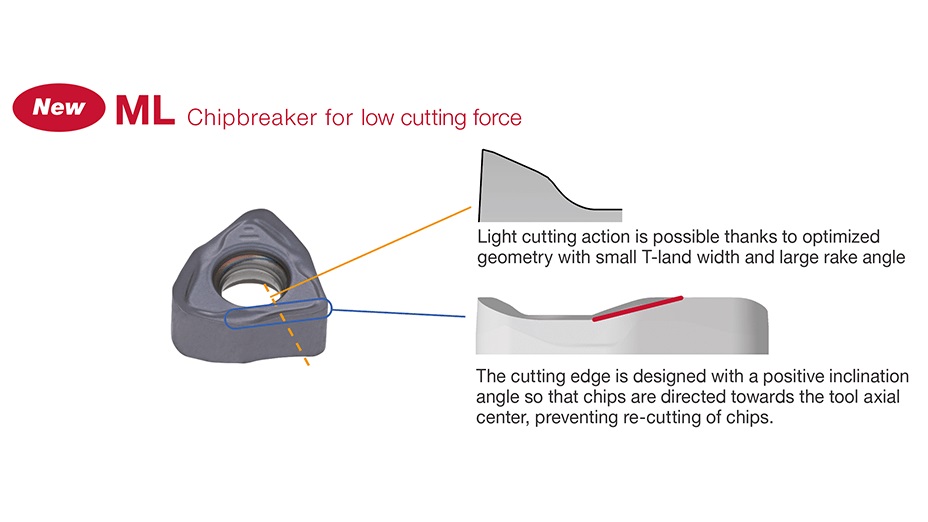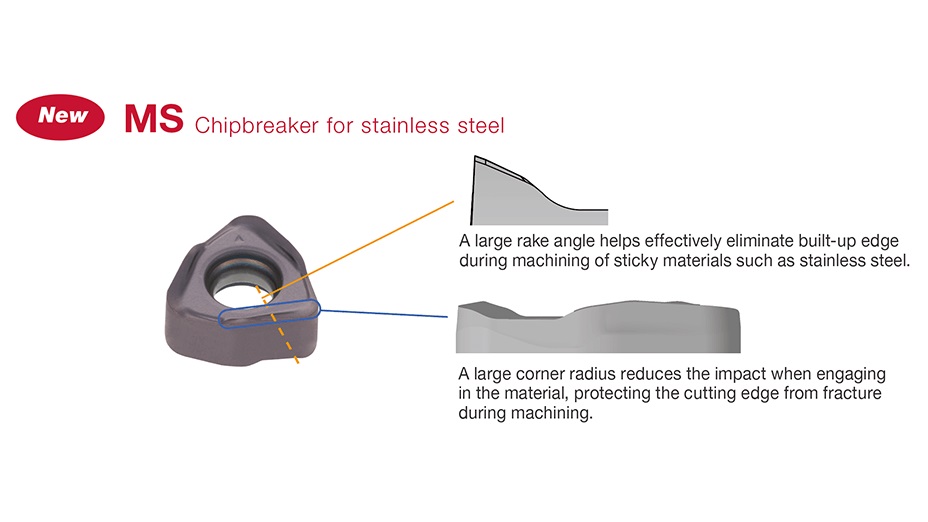
The DoFeedTri series of cutting tools from Tungaloy Corporation has been expanded with the introduction of a new grade optimized for stainless steel machining, enhanced low cutting force chipbreakers, and an extended range of cutter bodies for improved versatility and performance.
In general machining, stainless steel remains one of the most challenging materials to process. In particular, when machining from solid blocks, the cutting tools are subjected to high loads, leading to issues such as rapid wear and shortened tool life.

DoFeedTri, featuring a high-rigidity design and double-sided insert with six cutting edges, is a high-feed cutter ideal for high-efficiency roughing and ramping operations. Its excellent chip evacuation and durability significantly enhance machining efficiency and tool life.


Some of the features of the new grades and chipbreakers optimized for stainless steel machining, and low cutting force chipbreakers, include:
- The newly expanded AH130 grade delivers excellent wear and fracture resistance in stainless steel applications
- Low cutting forceand chipbreakers reduce cutting forces
- Reverse-positive land geometry enhances cutting edge strength and minimizes insert chipping risk
Its insert design combines high machining stability and cost efficiency. Benefits include:
- Double-sided, 6-corner inserts maximize the number of usable edges per insert, improving cost performance
- The 12° entry angle directs cutting forces toward the tool axis, reducing vibration during machining
- Wide inner cutting edge design enables a 3-degree ramping angle with ø16 size, supporting inclined cutting operations
Expanded cutter body lineup to meet diverse machining requirements.
- Wider range of diameters available for under-shank types, modular cutters, and bore-type cutters
- Flexible compatibility with various machine tools and machining conditions
- Greater freedom in tool selection facilitates optimization in production environments
Contact Details
Related Glossary Terms
- cutting force
cutting force
Engagement of a tool’s cutting edge with a workpiece generates a cutting force. Such a cutting force combines tangential, feed and radial forces, which can be measured by a dynamometer. Of the three cutting force components, tangential force is the greatest. Tangential force generates torque and accounts for more than 95 percent of the machining power. See dynamometer.
- land
land
Part of the tool body that remains after the flutes are cut.

